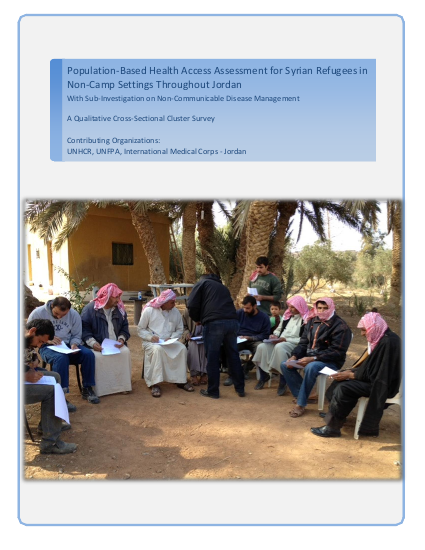With Sub-Investigation on Non-Communicable Disease Management. A Qualitative Cross-Sectional Cluster Survey

The progressive urbanisation of Jordan’s Syrian refugee population (by late 2013, roughly 4/5 Syrian refugees in Jordan were living in non-camp settings) prompted IMC to focus attention on out-of-camp refugee health. However, disproportionately little information on the healthcare status of this population was available to inform new programming. In order to address these information gaps, IMC, with support from UNHCR and UNFPA, undertook the Population-Based Health Access Assessment for Non-Camp Syrian Refugees Throughout Jordan (heretofore referred to simply as the Health Access Assessment). The field assessment sought to gather qualitative data pertaining to barriers to care, prevalent conditions, and secondary health factors impacting the health status of non-camp refugees. Pre-conflict statistics also indicated that non-communicable diseases have historically accounted for a significant portion of the disease burden among Syrians; a sub-investigation was added to the IMC Assessment to further explore refugees’ management of these conditions under the current circumstances.
The Health Access Assessment set out to address these critical data gaps in early November 2013. The assessment team conducted the primary data collection from December 1st until December 12th, 2013. Initial results were presented at the UNHCR-hosted Syria Crisis Health Assessment Conference on March 20th, 2014.
